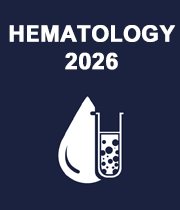Title : AI and machine learning technologies on immunotherapy
Abstract:
Cancers have long been investigated to be uncovered by differential microenvironmental conditions of malignant tumors for effective cancer diagnosis, prevention, and treatment. Recent advances in whole slide imaging technologies with ultra-high resolution have led to the accurate cancer detection and prognosis for precision treatment and functional monitoring. Up-to-date microscope slide scanners produce reliable and high-resolution images of tissue samples in a few-minute; however, cancer researchers are still required to provide laborious and time-consuming tasks on complex microscopy experiments for detecting different types of cells with interesting features. The tumor microenvironment is a complex biological environment including heterogeneous cellular components with various cell types such as tumor cells, stroma, blood vessels, and infiltrating inflammatory cells. Understanding the heterogeneous cellular components in the tumor microenvironment benefits developing therapeutic strategies thereby providing patients effective future strategies for cancer treatment. We present how the heterogeneous cellular components are spatially analyzed by using the state-of-arts deep learning technologies in the tumor microenvironment, demonstrating how to link the analyzed results to the patient prognosis, chemotherapy response, and immunotherapy. We have used Whole Slide Images (WSIs) of hematoxylin and eosin-stained formalin-fixed paraffin-embedded (FFPE) sections from different patient cohorts including some clinical data collected from South Korea and TCGA data freely available on GDC data portal. We preprocessed the datasets following traditional image processing methods and created prediction models using deep learning models. After then, we conducted spatial analysis by using a local statistic method to identify a statistically significant hot-spot region. In addition to the spatial analysis, we also present a hybrid interactive machine learning tool for cancer research. Since pathologists are still required to provide laborious and time-consuming tasks on complex microscopy experiments for identifying cancerous, it is critical to develop a fast, accurate, and reliable intelligent software tool for cancer researchers to detect cancer in the revolutionized whole slide images.
Audience Takeaway:
Using AI and machine learning technologies will not only significantly reduce the human effort for cancer detection but also provide more efficient and accurate spatial characteristics of complex prognostic biomarkers for cancer research. This presentation will provide audience with advanced computational approaches and excellence synergistic with unique strengths of pathology imaging, computational microbiology, and computational immunology.



